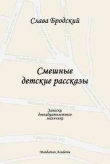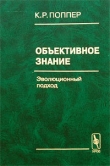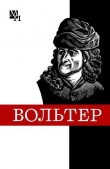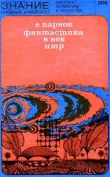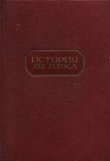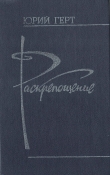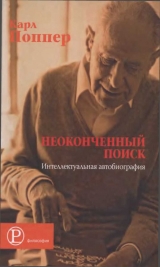
Текст книги "Неоконченный поиск. Интеллектуальная автобиография"
Автор книги: Карл Поппер
Жанры:
Биографии и мемуары
,сообщить о нарушении
Текущая страница: 19 (всего у книги 21 страниц)
Послесловие
Издатели этой книги попросили меня написать небольшое послесловие и спросили меня, по-прежнему ли я чувствую себя, как тогда, когда я создавал эту книгу в 1969 году, написав (на с. 136), что я самый счастливый философ из всех, которых когда-либо встречал.
Этот вопрос касается моего оптимизма, моей веры в то, что мы живем в удивительном мире. Эта моя вера только укрепилась с тех пор. Я очень хорошо знаю, что в нашем западном обществе много недостатков. Но я по-прежнему не сомневаюсь, что оно лучшее из всех, когда-либо существовавших. А многие недостатки являются следствием господствующей религии. Я имею в виду господствующую религиозную веру в то, что социальный мир, в котором мы живем, является чем-то вроде ада. Эта религия распространяется интеллектуалами, особенно теми, кто занимается преподавательской деятельностью или работает в средствах массовой информации. То, что мы наблюдаем, – это почти соревнование между самыми мрачными взглядами: тот, кто более радикально осудит западное общество, имеет больше шансов быть выслушанным (и, возможно, занять место лидера).
Рука об руку с этой пропагандой того, что наша западная либеральная демократия обречена, идет вера, которую разделяют многие интеллектуалы, что марксизм является наукой и что благодаря возможностям научного предсказания мы «знаем», что марксистская вера в конечном итоге будет победоносной. А неизбежность победы коммунизма подразумевает, что Запад должен просто сложить оружие, вместо того чтобы – конечно, тщетно! – противостоять неумолимому распространению коммунизма с оружием в руках. Поэтому только Запад будет нести ответственность за атомную войну, если она разразится. Таким образом, Запад выглядит ужасным монстром, угрожающим миру, в бессмысленной попытке предотвратить наступление коммунистического рая на земле.
Интеллектуалы по праву исповедуют прогрессивные взгляды; но прогресс легко не достигается, а простой прогрессивизм опасен, потому что он может привести к принятию ошибочных решений. Обратившись к марксизму как к прогрессивной программе и обнаружив его опровергнутым, как в теории, так и на практике, интеллектуалы стали еще более радикальными. Потому что они обнаружили, что смогут сохранить свою марксистскую веру, если возложат ответственность за то, что марксизм потерпел неудачу, на сопротивление марксизму со стороны «капиталистических» (то есть немарксистских) государств. (Например, многие думают, что именно это сопротивление заставляет Советский Союз тратить столько ресурсов на вооружение).
Мечта о марксистской Утопии, утопический радикализм и ненависть к не-марксистскому Западу привели к таким вещам, как поддержка насилия и утверждение, что свобода, которая сегодня на Западе связывается с индустриализацией, является скрытой формой тоталитаризма, а потому еще хуже, чем любая открытая форма тоталитаризма. Это современная форма той политической доктрины, которая была характерна для западных коммунистов, когда я впервые встретился с ними в 1919 году: политика «чем хуже, тем лучше» (для дела коммунизма).
Мне кажется, что есть только одна вещь, которой мы можем поучиться у русских: они говорят своим людям, что они живут в лучшем обществе в мире.
Любой, кто готов серьезно сравнивать нашу жизнь в наших западных либеральных демократиях с жизнью в других обществах, будет вынужден согласиться, что в Европе и Северной Америке, в Австралии и Новой Зеландии мы имеем лучшие и самые справедливые общества, которые когда-либо существовали на всем протяжении человеческой истории. Здесь не только очень мало людей, которые остро страдают от недостатка пищи или жилья, но и открыто бесконечно больше перспектив выбора своего будущего для молодежи. Существует масса возможностей для тех, кто хочет учиться, кто хочет разнообразно наслаждаться жизнью. Но, наверное, самым важным является то, что мы готовы выслушивать информированную критику и определенно радуемся, когда нам дают разумный совет по улучшению нашего общества. Потому что наше общество не только открыто для реформ, оно беспокоится о собственном реформировании.
Вопреки всему этому, пропаганда мифа, что мы живем в уродливом обществе, преуспела.
Откройте глаза и взгляните, как прекрасен этот мир и как счастливы мы, кто в нем живет!
Май, 1986
Мой издатель попросил меня написать второе Послесловие для нового издания, поскольку первому Послесловию уже шесть лет. Мне кажется, что я, наверное, зажился.
Действительно: все мои ближайшие родственники уже умерли, равно как и некоторые из моих лучших друзей и даже некоторые из моих лучших учеников. Однако у меня нет поводов для жалоб. Я испытываю счастье и благодарность за то, что я жив и все еще способен продолжать работать, хоть и немного. Моя работа теперь для меня важнее, чем когда-либо прежде.
Но я не должен говорить о себе: в течение последних нескольких лет произошли события величайшей важности. Советский Союз рухнул и перестал существовать – и, пока, без большой катастрофы. Это, наряду с подготовкой к Первой мировой войне, которая почти разрушила европейскую цивилизацию, является одним из важнейших ходов событий в моей жизни.
Советский Союз исчез, а вместе с ним и величайшая ядерная угроза человечеству. Так давайте радоваться. И давайте надеяться, что угроза не вернется в каком-нибудь новом обличии: возможностей для этого много. И давайте разоружаться, давайте перестанем делиться на Левых и Правых – ведь это часть наследия марксизма, ставшая следствием ядерной угрозы.
Давайте теперь попытаемся жить в мире и наслаждаться нашими обязанностями.
Кенли, февраль, 1992
ОСНОВНЫЕ ПУБЛИКАЦИИ И СПИСОК СОКРАЩЕНИЙ
В примечаниях данные сокращений использованы для ссылок на главные произведения автора. Ссылки в квадратных скобках относятся к «Избранной библиографии».
L. d. F. = Logik der Forschung 1934; 2nd edn. (основано на L. Sc. D.) 1966; 10th edn., 1994. Cm.: [1934(b)], [1966(e)] и [1994 (e)]; см. также L. Sc. D.
O. S. = The Open Society and its Enemies, voL /, The Spell of Plato; vol. II, The High Tide of Prophecy: Hegel, Marx and Aftermath 1945; 5th edn., 1966. Cm.: [1945(b), (c)], [1950(a)], [1966(a)].
Переведена на болгарский, китайский, чешский, датский, голландский, финский, французский, немецкий, греческий, венгерский, итальянский, японский, корейский, литовский, фарси, польский, португальский, румынский, русский, сербский, сербо-хорватский, испанский, шведский, турецкий и украинский языки.
The Poverty = The Poverty of Historicism 1944/45; 1957. Cm.: [1944(a), (b)], [1945(a)], [1957(g)].
Переведена на арабский, китайский, хорватский, чешский, датский, голландский, эстонский, французский, немецкий, венгерский, индонезийский, итальянский, японский, казахский, македонский, монгольский, норвежский, фарси, польский, португальский, румынский, русский и испанский языки.
L. Sc. Z). = The Logic of Scientific Discovery 1959. (Включая английский перевод L. d. F. [1934(b)]). Cm.: [1959(a)], [1977(r)].
Переведена на каталанский, китайский, чешский, французский, немецкий, венгерский, итальянский, японский, корейский, фарси, польский, португальский, румынский, сербо-хорватский, словенский, испанский и турецкий языки.
С. & R. = Conjectures and Refutations: The Growth of Scientific Knowledge 1963; 5th edn., 1989. Cm.: [1963(a)], [1989(u)]. Переведена на китайский, финский, французский, немецкий, итальянский, японский, корейский, фарси, польский, португальский, румынский и испанский языки.
Obj.Kn. = Objective Knowledge: An Evolutionary Approach 1972; 2nd edn., 1979. Cm.: [1972(a)], [1979(a)].
Переведена на каталанский, китайский, французский, немецкий, итальянский, японский, польский, португальский и испанский языки.
Replies = Replies to my Critics, в: Paul A. Schilpp (ed.), The Philosophy of Karl Popper, vol. 14/1 и 14/11 в: The Library of Living Philosophers (La Salle, 111.: Open Court Publishing Co., 1974), pp. 961 – 1197. Cm.: [1974(c)].
Self = The Self and Its Brain (with John C. Eccles) 1977. Cm.: [1977(u)]. Переводы на немецкий, итальянский, японский, португальский и испанский.
Новейшая библиография сочинений Поппера размещена в Интернете по адресу:
http://www.univie.ac.at/Wissenschaftstheorie/popper/en/biblio/ htm
ИЗБРАННАЯ БИБЛИОГРАФИЯ
1925
(a) «Über die Stellung des Lehrers zu Schule und Schüler. Gesellschaftliche oder individualistische Erziehung?», Schulreform (Vienna), 4, pp. 204–208.
1927
(a) «Zur Philosophie des Heimatgedankens», Die Quelle (Vienna), 77, pp. 899–908.
(b) " ‘Gewohnheit’ und‘Gesetzerlebnis’ in der Erziehung», unpublished, a thesis presented (unfinished) to the Pedagogic Institute of the City of Vienna.
1928
(a) Zur Methodenfrage der Denkpsychologie (unpublished). Doctoral dissertation submitted to the Philosophical Faculty of the University of Vienna.
1931
(a) «Die Gedächtnispflege unter dem Gesichtspunkt der Selbsttätigkeit», Die Quelle (Vienna), 81, pp. 607–619.
1932
(a) «Pädagogische Zeitschriftenschau», Die Quelle (Vienna), 82, pp. 301–303; 580–582; 646–647; 712–713; 778–781; 846–849; 930–931.
1933
(a) «Ein Kriterium des empirischen Charakters theoretischer Systeme», a letter to the editor, Erkenntnis,3, pp. 426–427.
1934
(b) Logik der Forschung, Julius Springer Verlag, Vienna (with the imprint «1935»).
1935
(a) " ‘Induktionslogik’ und ‘Hypothesenwahrscheinlichkeit’», Erkenntnis,5, pp. 170–172.
1938
(a) «A Set of Independent Axioms for Probability», Mind, 47, pp. 275–277.
1940
(a) «What is Dialectic?», Mind, 49, pp. 403–426.
1944
(a) «The Poverty of Historicism, I», Economica,ll, pp. 86-103.
(b) «The Poverty of Historicism, II. A Criticism of Historicist Methods», Economica, 11, pp. 119–137.
1945
(a) «The Poverty of Historicism, III», Economica, 12, pp. 69–89.
(b) The Open Society and Its Enemies, volume I, The Spell of Plato, George Routledge & Sons, Ltd., London.
(c) The Open Society and Its Enemies, volume II, The High Tide of Prophecy: Hegel, Marx, and The Aftermath, George Routledge & Sons Ltd., London.
(e) «Research and the University: A Statement by a Group of Teachers in the University of New Zealand», The Caxton Press (Christchurch, New Zealand); written in co-operation with R.S. Allan, J. C. Eccles, H. G. Forder, J. Packer, and H.N. Parton.
1946
(b) «Why are the Calculuses of Logic and Arithmetic Applicable to Reality?», Aristotelian Society, Supplementary Volume XX: Logic and Reality, Harrison and Sons Ltd., London, pp. 40–60.
1947
(a) «New Foundations for Logic», Mind, 56, pp. 193–235.
(b) «Logic Without Assumptions», Proceedingsof the Aristotelian Society, XLVII, pp. 251–292.
(c) «Functional Logic without Axioms or Primitive Rules of Inference», Koninklijke Nederlandsche Akademie van Wetenschappen, Proceedings of the Section of Sciences(Amsterdam),50, pp. 1214–1224, and Indagationes Mathematicae, 9, pp. 561–571.
1948
(b) «On the Theory of Deduction, Part I, Derivation and its Generalizations». Koninklijke Nederlandsche Akademie van Wetenschappen, Proceedings of the Section of Sciences (Amsterdam), 51, pp. 173–183, and Indagationes Mathematicae, 10, pp. 44–54.
(c) «On the Theory of Deduction, Part II. The Definitions of Classical and Intuitionist Negation», Koninklijke Nederlandsche Akademie van Wetenschappen, Proceedings of the Section of Sciences(Amsterdam),51, pp. 322–331, and Indigationes Mathematicae, 10, pp. 111–120.
(d) «Prediction and Prophecy and their Significance for Social Theory», Library of the Tenth International Congress of Philosophy, 1: Proceedings of the Tenth International Congress of Philosophy, edited by E. W. Beth, H. J. Pos, and J. H. A. Hollak, North-Holland Publishing Company, Amsterdam, pp. 82–91.
(e) «The Trivialization of Mathematical Logic», ibid., pp. 722–727.
(f) «What can Logic do for Philosophy?» Aristotelian Society, Supplementary Volume XXII: Logical Positivism and Ethics, Harrison and Sons Ltd., London, pp. 141–154.
1949
(d) «Naturgesetze und theoretische Systeme», Gesetz und Wirklichkeit, edited by Simon Moser, Tyrolia Verlag, Innsbruck and Vienna, pp. 43–60.
1950
(a) The Open Society and Its Enemies, Princeton University Press.
(b) «Indeterminism in Quantum Physics and in Classical Physics, Part I», The British Journal for the Philosophy of Science, 1, pp. 117–133.
(c) «Indeterminism in Quantum Physics and in Classical Physics, Part II», The British Journal for the Philosophy of Science, 1, pp. 173–195.
(d) De Vrije Samenleving en Haar Vijanden, F. G. Kroonder, Bussum, Holland.
1952
(a) The Open Society and Its Enemies, second English edition, Routledge & Kegan Paul, London.
1953
(a) «Language and the Body-Mind Problem», Proceedings of the Xlth International Congress of Philosophy, 7, North-Holland Publishing Company, Amsterdam, pp. 101–107.
(d) «A Note on Berkeley as Precursor of Mach», The British Journal for the Philosophy of Science,4, pp. 26–36.
1954
(c) «Self-Reference and Meaning in Ordinary Language», Mind, 63, pp. 162–169.
1955
(c) «A Note on the Body-Mind Problem. Reply to Professor Wilfrid Sellars», Analysis,15, pp. 131–135.
(d) «A Note on Tarski’s Definition of Truth», Mind, 64, pp. 388–391.
1956
(b) «The Arrow of Time», Nature, 177, p. 538.
(g) «Irreversibility and Mechanics», Nature, 178, p.382.
1957
(a) «Philosophy of Science: APersonal Report», British Philosophy in the Mid-Century: A Cambridge Symposium, edited by C. A. Mace, George Allen and Unwin, London, pp. 155–191.
(d) «Irreversible Processes in Physical Theory», Nature, 179, p. 1297.
(e) «The Propensity Interpretation of the Calculus of Probability, and the Quantum Theory», Observation and Interpretation; A Symposium of Philosophers and Physicists: Proceedings of the Ninth symposium of the Colston Research Society held in the University of Bristol, April lst-April 4th, 1957, edited by S. Körner in collaboration with M. H. L. Pryce, Butterworths Scientific Publications, London, pp. 65–70, 88–89.
(f) «Irreversibility; or Entropy since 1905», The British Journal for the Philosophy of Science,8, pp. 151–155.
(g) The Poverty of Historicism, Routledge & Kegan Paul, London, and the Beacon Press, Boston, Mass.
(h) The Open Society and Its Enemies, third edition, Routledge & Kegan Paul, London.
(i) «The Aim of Science», Ratio: (Oxford), 1, pp. 24–35.
(j) «Über die Zielsetzung der Erfahrungswissenchaft», Ratio (Frankfurt a.M.), l, pp. 21–31.
(k) Der Zauber Platons: Die offene Gesellschaft und ihre feinde, Band I, Francke Verlag, Bern.
(l) «Probability Magic or Knowledge out of Ignorance», Dialectica, 11, pp. 354–372.
1958
(b) «Irreversible Processes in Physical Theory», Nature, 181, pp. 402–403.
(c) «Das Problem der Nichtwiderlegbarkeit von Philosophien», Deutsche Universitätszeitung (Göttingen), 13, pp. 7-13.
(f) «On the Status of Science and of Metaphysics. Two Radio Talks: (i) Kant and the Logic of Experience, (ii) The Problem of the Irrefutability of Philosophical Theories», Ratio (Oxford), 1, pp. 97-115.
(g) «Über die Möglichkeit der Erfahrungswissenschaft und der Metaphysik, Zwei Rundfunkvorträge: (i) Kant und die Möglichkeit der Erfahrungswissenschaft, (ii) Über die Nichtwiderlegbarkeit philosophischer Theorien», Ratio(Frankfurt a.M.), 2, pp. 1-16.
(i) Falsche Propheten: Hegel Marx und die Folgen, Die offene Gesellschaft und ihre Feinde, Band II, Francke Verlag, Bern.
1959
(a) The Logic of Scientific Discovery, Hutchinson & Co., London; Basic Books Inc., New York.
(e) «The Propensity Interpretation of Probability», The British Journal for the Philosophy of Science, 10, pp. 25–42.
(g) «Woran glaubt der Westen?», in Erziehung zur Freiheit, edited by Albert Hunold, Eugen Rentsch Verlag, Stuttgart, pp. 237–262.
(к) «Critical Rationalism», in Philosophy for a Time of Crisis: An Interpretation with Key Writings by Fifteen Great Modern Thinkers, edited by Adrienne Koch, Dutton & Co., New York, pp. 262–275.
1960
(d) «On the Sources of Knowledge and of Ignorance», Proceedings of the British Academy,46, pp. 39–71.
1961
(d) «Selbstbefreiung durch das Wissen», in Der Sinn der Geschichte, edited by Leonhard Reinisch, С. H. Beck Verlag, Munich, 1961, pp. 100–116. (English translation [1968 (t)].)
(f) On the Sources of Knowledge and of Ignorance, Annual Philosophical Lecture, Henriette Hertz Trust, British Academy, Oxford University Press, London.
(h) «Philosophy and Physics», Atti del XII Congresso Internazionale di Filosofia, 2, G. C. Sansoni Editore, Florence, pp. 367–374.
(j) Evolution and the Tree of Knowledge, Herbert Spencer Lecture, delivered on October 30th, 1961, in Oxford. (Now Chapter 7 of [1972(a)].)
1962
(c) The Open Society and Its Enemies, fourth English edition, Routledge & Kegan Paul, London.
(d) The Open Society and Its Enemies, Routledge Paperbacks, Routledge & Kegan Paul, London.
(f) «Julius Kraft 1898–1960», Ratio (Oxford),4, pp. 2-10.
(k) «Die Logik der Sozialwissenschaften», in Kölner Zeitschrift für Soziologie und Sozialpsychologie, Heft, 2, pp. 233–248. (See also [1969(m)] and [1976(b)].)
1963
(a) Conjectures and Refutations: The Growth of Scientific Knowledge, Routledge & Kegan Paul, London; Basic Books Inc., New York.
(h) «Science: Problems, Aims, Responsibilities», Federation Proceedings(Baltimore), 22, pp.961–972.
(l) The Open Society andlts Enemies, Princeton University Press, Princeton, N. J.
(m) The Open Society and Its Enemies, The Academy Library, Harper & Row, New York and Evanston.
1964
(a) The Poverty of Historicism, The Academy Library, Harper & Row, New York and Evanston.
1965
(f) «Time’s Arrow and Entropy», Nature, 207, pp. 233–234.
1966
(a) The Open Society and Its Enemies, fifth English edition, Routledge Paperbacks, Routledge & Kegan Paul, London.
(e) Logik der Forschung, second edition, J. С. B. Mohr (Paul Siebeck), Tübingen.
(f) Of Clouds and Clocks: An Approach to the Problem of Rationality and the Freedom of Man, Washington University Press, St. Louis, Missouri. (Now in [1972(a)].)
(g) «A Theorem on Truth-Content», Mind, Matter and Method: Essays in Philosophy and Science in Honor of Herbert Feigl, edited by Paul K. Feyerabend and Grover Maxwell, University of Minnesota Press, Minneapolis, Minnesota, pp. 343–353.
(i) «Historical Explanation: An Interview with Sir Karl Popper», University of Denver Magazine,3, pp. 4–7.
1967
(b) «Time’s Arrow and Feeding on Negentropy», Nature, 213, p. 320.
(d) «La rationalité et le statut du principe de rationalité», Les Fondements Philosophiques des Systèmes Economiques: Texts de Jacques Rueff et essais rédigés en son honneur 23 août 1966, edited by Emil M. Claassen, Payot, Paris, pp. 142–150.
(e) «Zum Thema Freiheit», in Die Philosophie und die Wissenschaften: Simon Moser zum 65. Geburstag, edited by Ernst Oldemeyer, Anton Hain, Meisenhem am Glan, pp. 1-12.
(h) «Structural Information and the Arrow of Time», Nature, 214, p. 322.
(к) «Quantum Mechanics without ‘The Observer’», Quantum Theory and Reality, edited by Mario Bunge, Springer-Verlag, Berlin, Heidelberg, New York, pp. 7-44.
(t) «Einstein’s Influence on My View of Science: An Interview», in Einstein: The Man and his Achievement, edited by G. J. Whitrow, B.B.C., London, pp. 23–28.
1968
(e) «Is there an Epistemological Problem of Perception?», Proceedings of the International Colloquium in the Philosophy of Science, 3: Problems in the Philosophy of Science, edited by Imre Lakatos and Alan Musgrave, North-Holland Publishing Company (Amsterdam), pp. 163–164.
(i) «Theories, Experience, and Probabilistic Intuitions», Proceedings of the International Colloquium in the Philosophy of Science, 2: The Problem of Inductive Logic, edited by Imre Lakatos, North-Holland Publishing Company (Amsterdam), pp. 285–303.
(q) «Birkhoff and von Neumann’s Interpretation of Quantum Mechanics», in Nature,219, No. 5155,17.8.1968, pp. 682–685.
(r) «On the Theory of the Objective Mind», Akten des XIV International Kongresses für Philosophie, 1, University of Vienna, Verlag Herder, Vienna, pp. 25–53.
(s) «Epistemology Without a Knowing Subject», Proceedings of the Third International Congress for Logic, Methodology and Philosophy of Science: Logic, Methodology and Philosophy of Science III, edited by B. van Rootselaar and J. F. Staal, North-Holland Publishing Company, Amsterdam, pp. 333–373.
(t) «Emancipation through Knowledge», in The Humanist Outlook, edited by A. J. Ayer, Pemberton Publishing Company, London, pp. 281–296.
1969
(e) Logik der Forschung, third edition, J.C.B. Mohr (Paul Siebeck), Tübingen.
(h) Conjectures and Refutations, The Growth of Scientific Knowledge, third edition, Routledge & Kegan Paul, London.
(j) «A Pluralist Approach to the Philosophy of History», Roads to Freedom: Essays in Honour of Friedrich A. von Hayek, edited by Erich Streissler, Gottfried Haberler, Friedrich a. Lutz and Fritz Machlup, Routledge & Kegan Paul, London, pp. 181-200.
(k) «The Aim of Science», Contemporary Philosophy: A Survey, edited by Raymond Klibansky, III: Metaphysics, Phenomenology, Language and Structure, La Nuova Italia Editrice, Florence, pp. 129–142.
(m) «Die Logik der Sozialwissenschaften», in Der Positivismusstreit in der deutschen Soziologie, edited by H. Maus and F. Fürstenberg, Hermann Luchterhand Verlag, Neuwied and Berlin, pp. 103–123. (See also [1976(b)].)
1970
(d) «Plato, Timaeus54E-55A», The Classical Review, XX, pp. 4–5.
(l) «A Realist View of Logic, Physics, and History», Physics, Logic and History, edited by Wolfgang Yourgrau and Allen D. Breck, Plenum Press, New York and London, pp. 1-30, and 35–37.
1971
(g) «Revolution oder Reform?», in Revolution oder Reform? Herbert Marcuse und Karl Popper – Eine Konfrontation, edited by Franz Stark, Kösel-Verlag, Munich, pp.3, 9-10, 22–29, 34–39, 41. (English translation [1972(f)].)
(i) «Conjectural Knowledge: My Solution of the Problem of Induction», Revue Internationale de Philosophie, No. 95–96,25fasc. 1–2, pp. 167–197.
(1) «Conversation with Karl Popper», in Modern British Philosophy by Bryan Magee, Seeker & Warburg, London, pp. 66–82.
(n) «Particle Annihilation and the Argument of Einstein, Podolsky, and Rosen», Perspectives in Quantum Theory: Essays in Honor of Alfred Landé, editedby Wolfgang Yourgrau and Alwyn van der Merwe, M.I.T. Press, Cambridge, Mass., and London, pp. 182–198.
1972
(a) Objective Knowledge: An Evolutionary Approach, Clarendon Press, Oxford.
(f) «On Reason & the Open Society: A Conversation», Encounter, 38, No. 5, pp. 13–18.
1973
(a) «Indeterminism is Not Enough», Encounter,40, No. 4, pp. 20–26.
(n) Die offene Gesellschaft und ihre Feinde, volumes I and II, third edition, Francke Verlag, Bern and Munich.
1974
(b) «Autobiography of Karl Popper», in The Philosophy of Karl Popper, in The Library of Living Philosophers, edited by P. A. Schilpp, volume I, Open Court Publishing Co., LaSalle, pp. 3-181.
(c) «Replies to my Critics», in The Philosophy of Karl Popper, in The Library of Living Philosophers, edited by P. A. Schilpp, volume II, Open Court Publishing Co., LaSalle, pp. 961-1197.
(z2) «Scientific Reduction and the Essential Incompleteness of All Science», in Studies in the Philosophy of Biology, edited by F. J. Ayala and T. Dobzhansky, Macmillan, London, pp. 259–284; also University of California Press, Berkeley.
(z3) «Normal Science and Its Dangers», in Criticism and the Growth of Knowledge, edited by imre Lakatos and Alan Musgrave, Cambridge University Press, pp. 51–58.
1975
(o) «How I See Philosophy», in The Owl of Minerva. Philosophers on Philosophy, edited by C. T. Bontempo and S. J. Odell, McGrawHill, New York, pp. 41–55.
(p) «The Rationality of Scientific Revolutions», in Problems of Scientific Revolution. Progress and Obstacles to Progress in the Sciences, The Herbert Spencer Lectures 1973, edited by Rom Harre, Clarendon Press, Oxford, pp. 72-101.
(t) «Wissenschaft und Kritik», in Idee und Wirklichkeit: 30 Jahre Europäisches Forum, Alpbach, Springer-Verlag, Vienna and New York, pp. 65–75.
1976
(a) Logik der Forschung, sixth revised impression, J. С. В. Mohr (Paul Siebeck), Tübingen.
(b) «The Logic of the Social Sciences», in The Positivist Dispute in German Sociology, Heinemann Educational Books, London, pp. 87-104.
(c) «Reason or Revolution?», in The Positivist Dispute in German Sociology, Heinemann Educational Books, London, pp. 288–300.
(h) «A Note on Verisimilitude», The British Journal for the Philosophy of Science, 27, pp. 147-59.
(o) «The Myth of the Framework», in The Abdication of Philosophy. Philosophy and the Public Good. Essays in Honor of Paul Arthur Schilpp, edited by Eugene Freeman, Open Court, La Salle, pp. 23–48.
(s) The Poverty of Historicism, ninth impression, Routledge & Kegan Paul, London.
(t) Conjectures and Refutations, sixth impression, Routledge & Kegan Paul, London.
(z6) «On Reason and Open Society», in Revolution or Reform? A Confrontation, edited by A. T. Ferguson, New University Press, Chicago.
1977
(g) «The Death of Theories and of Ideologies», in La reflection sur la mort, 2, Symposium International de Philosophie «PLETHON», Athens, pp. 296–328.
(n) «Some Remarks on Panpsychism and Epiphenomenalism», Dialectica, 31, pp. 177–186.
(r) The Logic of Scientific Discovery, ninth impression, Hutchinson, London.
(u) The Self and Its Brain: an Argument for Interactionism, with John C. Eccles, Springer International, Berlin, Heidelberg, London, New York.
(y) The Open Society and Its Enemies, twelfth impression, Routledge & Kegan Paul, London.
1978
(a) «On the Possibility of an Infinite Past: A Reply to Whitrow», The British Journal for the Philosophy of Science,29, pp. 47-8.
(z) «Natural Selection and the Emergence of Mind», Dialectica, 32, pp. 339–355.
(z5) «Bemerkungen über die Frankfurter Schule», in Gespräche mit Herbert Marcuse, Suhrkamp Verlag, Frankfurt am Main, pp. 130–134.
1979
(a) Objective Knowledge: An Evolutionary Approach, fifth (revised) edition, Oxford University Press, Oxford. (This contains a new Appendix 2.)
(b) «Is it True What She Says About Tarski?», Philosophy, 54, p. 98.
(c) «Die Wechselwirkung und die Wirklichkeit der Welt 3», in Wissen und Macht, edited by О. Molden, Verlag Fritz Molden, Wien-München-Zürich-Innsbruck, pp. 108–116.
(f) «Three Worlds», Michigan Quarterly Review, 18, No. 1, pp. 1-23.
(g) «Epistemology and Industrialization», Ordo, 30, pp. 3-20.
(m) «Ich weiss, dass ich fast nichts weiss, und kaum das», Uni Report, Universität Frankfurt, 12, No. 9, pp. 3f.
(w) Ausgangspunkte, Meine Intellektuelle Entwicklung, Hoffman und Campe, Hamburg.
(x) «Creative Self-Criticism in Science and in Art», Encounter, 53, pp. 10–14.
(z2)Die beiden Grundprobleme der Erkenntnistheorie, edited by Troels Eggers Hansen, J. С. B. Mohr (Paul Siebeck), Tübingen.
(z5) The Growth of Scientific Knowledge, Vittorio Klosterman, Frankfurt am Main.
(z9) «Uber die sogenannten Quellen der menschlichen Erkenntnis», Das Fenster,25, pp. 2527–2529.
1980
(a) The Logic of Scientific Discovery, tenth impression (revised), Hutchinson, London.
(о) «Wissen und Nichtwissen», in Verleihung der Ehrendoktorwürde an Sir Karl Popper, Pressestelle der Universität, Frankfurt am Main.
(р) «Three Worlds», in The Tanner Lectures on Human Values, vol. 1, edited by Sterling M. McMurrin, University of Utah Press, Salt Lake City, and Cambridge University Press, Cambridge, pp. 141–167.
(y) The Open Society and Its Enemies, vols. I and II, thirteenth impression, Routledge and Kegan Paul, London.
(z7) Detöppnasamhälletochdessfiender,vol.I,Akademilitterature, Stockholm.
1981
(m) «An Experiment to Interpret E.P.R. Action-at-a-Distance: The Possible Detection of Real De Broglie Waves» (with A. Garuccio and J.-P. Vigier), Epistemological Letters, 30th Issue.
(z) «Wissenschaft: Wissen und Nichtwissen», Weltwoche Magazin, No. 33, pp. 10–12.
(zl) «Uber den Zusammenprall von Kulturen», in 25 Jahre Staatsvertrag, Österreichischer Bundesverlag, Wien, pp. 118–122.
(zlO) Joseph Henry Woodger, The British Journal for the Philosophy of Science,32, pp. 382–330.
(zl2) «The Present Significance of Two Arguments of Henri Poincaré», Methodology and Science, 14, pp. 260–264.
(zl7) Foreword to Cosmology, Physics and Philosophy, by Benjamin Gal-Or, Springer Verlag N.Y. Inc., New York.
1982
(a) The Open Universe: An Argument for Indeterminism. From the Postscript to the Logic of Scientific Discovery, edited by W. W. Bartley III, Hutchinson of London; Rowman and Littlefield, Totowa, New Jersey.
(b) Quantum Theory and the Schism in Physics. From the Postscript to the Logic of Scientific Discovery, edited by W. W. Bartley III, Hutchinson of London; Rowman and Littlefield, Totowa, New Jersey.
(e) Logik der Forschung, seventh impression, revised and enlarged, with six new Appendices, J. С. B. Mohr (Paul Siebeck), Tübingen.
(i) Ausgangspunkte: Meine Intellektuelle Entwicklung, second revised edition with augmented bibliography, Hoffman und Campe, Hamburg.
(m) «Proposal for a Simplified New Variant of the Experiment of Einstein, Podolsky and Rosen», Physik, Philisophie und Politik (Festschrift for C. F. von Weizsäcker’s 70th birthday), edited by Klaus Michael Meyer-Abich, Carl Hanser Verlag, Munich, pp. 310-13.
(r) Offene Gesellschaft – offenes Universum, Discussions between Franz Kreuzer and K. R. Popper (1979, 1981, 1982), and a lecture by K. R. Popper; edited by Franz Kreuzer, Franz Deuticke, Vienna.
(s) «The Place of Mind in Nature», Mind in Nature(Nobel Conference XVIII, Gustavus Adolphus College), edited by Richard Q. Elvee, Harper and Row, San Francisco, pp. 31–59.
(u) «Duldsamkeit und Intellektuelle Verantwortlichkeit», Toleranz, edited by Peter Stuhlmacher and Luise Abramowski, Atempto Verlag, Tübingen University Press, pp. 173-85.
(y) «A Critical Note on the Greatest Days of Quantum Theory», Foundations of Physics, 12, No. 10, pp. 971-6.
1983
(a) The Logic of Scientific Discovery, 11th impression, Hutchinson of London.
(b) Realism and the Aim of Science. From the Postscript to the Logic of Scientific Discovery, edited by W. W. Bartley III, Hutchinson of London, Rowman and Littlefield, Totowa, New Jersey.
(d) «Is Determinism Self-Refuting?», Mind, 92, pp. 103-4.
(e) «Bücher und Gedanken», Anzeiger des Österreichischen Buchhandels, 118.
(f) «A Proof of the Impossibility of Inductive Probability», published with David Miller, Nature,302, pp. 687-8.

